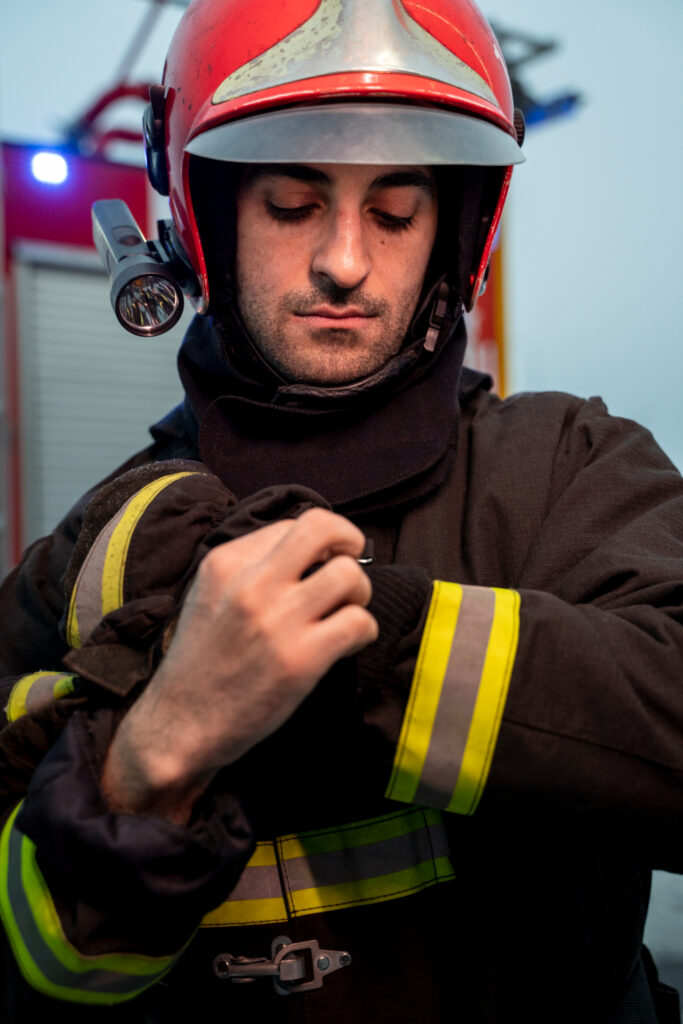 The fire service needs impressive people – both men and women who can handle challenging situations calmly and skillfully. Being brave is essential, but being good at this job means having more than just courage.
The fire service needs impressive people – both men and women who can handle challenging situations calmly and skillfully. Being brave is essential, but being good at this job means having more than just courage.
This article discusses the essential skills that make great firefighters stand out. By learning about these critical abilities, we can better understand what makes firefighters special and how they help our community.
1. From The Inside Out:
There are some skills a firefighter must have on the inside to tackle whatever challenges come their way. Here are some of the most critical skills a firefighter needs to have:
Emotional Agility:
Excellent firefighters understand the importance of effectively managing their emotions, even though facing danger is an inherent part of their job. They are skilled at separating their grief and fear, which helps them stay compassionate and focused when faced with hardship. This emotional intelligence keeps them safe and guarantees they are always prepared to face obstacles head-on.
Spatial Reasoning:
Firefighters work in dynamic settings with heat and flames that are constantly changing. They exhibit remarkable abilities when it comes to spatial reasoning. Furthermore, they make quick choices that allow them to move through the fire safely and put safety first by spotting heat flow, estimating the direction of the fire, and mentally mapping out escape routes.
Sensory Acuity Beyond Sight:
In the smoke-filled chaos, sight alone isn’t enough. Exceptional firefighters harness their sense of smell and sound to detect hidden dangers, like gas leaks or trapped victims. Their sense of touch helps them navigate uneven terrain and locate individuals hidden in debris.
They even utilize taste, with the metallic tang of blood potentially guiding them to the injured. This heightened sensory awareness grants them a deeper understanding of the environment, allowing them to react swiftly and save lives.
2. From The Community Perspective
A firefighter works for the community, and it is imperative to understand better what goes on to serve a better purpose.
Cultural Competency:
Firefighters are community partners as well as first responders. They must comprehend the various cultural backgrounds, fears, and needs of the people they serve. Their cultural competency improves their ability to establish rapport and trust, improving communication, intervention, and service delivery. Recognizing and appreciating cultural complexities creates links rather than divides, strengthening the community’s unity.
Entrepreneurial Skills:
Firefighters wear many hats, such as being event organizers or entrepreneurs. Recognizing their role as community advocates, they don’t confine themselves to responding to emergencies. They organize community events, fire safety education programs, and even fundraising initiatives for local causes. This demonstrates their commitment to public well-being beyond immediate response, fostering a sense of partnership and shared responsibility for safety and well-being.
Storytelling:
Telling stories isn’t just about fire trucks and hoses. Firefighters who have been in the field for a long while understand how important it is to share their experiences, challenges, and successes. With the help of compelling stories, they create a stronger bond with the community, making people understand and care about their important role. Captains of firefighter stations can present firefighter trophies to their unit and narrate the stories that have led up to each award as a way for the community to relate to them.
Collaborative Problem-Solving:
Firefighters face challenges that extend beyond individual emergencies. Identifying the interconnectedness of their community, exceptional firefighters actively participate in collaborative problem-solving initiatives. This might involve working with local organizations to address fire safety hazards in vulnerable areas, partnering with educators to implement fire safety curricula in schools, or participating in community forums to address broader safety concerns.
3. From A Technological Standpoint:
The technological world is moving forward rapidly, and firefighters need to be quicker to catch up. Here are some essential technological skills for firefighters to master.
Data Analysis:
Exceptional firefighters leverage data from sensors and wearables to make real-time informed decisions, optimize resource allocation, and improve safety protocols. This means analyzing building plans en route, visualizing heat patterns through thermal imaging helmets, or prioritizing rescues based on real-time air quality readings. Data empowers them to navigate the unknown with unparalleled precision.
Tech Fluency:
Top firefighters don’t shy away from change; they actively become tech-fluent. Mastering drones for situational awareness, utilizing robots for search and rescue, and staying ahead of the curve on emerging technologies ensures they remain at the forefront of safety and efficiency.
Cybersecurity Awareness:
Today, fire stations aren’t immune to threats. For that reason, firefighters understand the importance of cybersecurity awareness. They actively mitigate cyber threats, safeguard critical infrastructure, and protect sensitive data. This vigilance ensures they can focus on their core mission without fearing digital disruptions.
The modern firefighter is a multifaceted hero, equipped with physical strength and emotional resilience, community engagement, and being technologically savvy. It’s a demanding role that requires a diverse skill set and unwavering dedication. As we continue to rely on them in times of crisis, let’s remember to appreciate the breadth and depth of their contributions to our safety and well-being.







